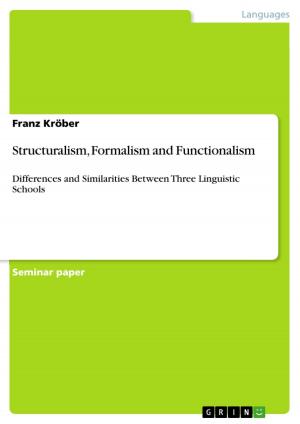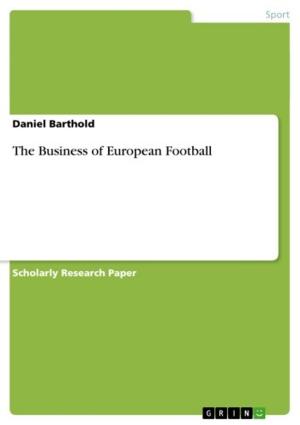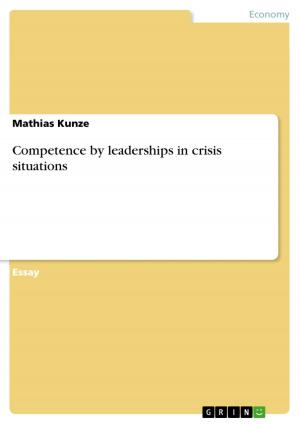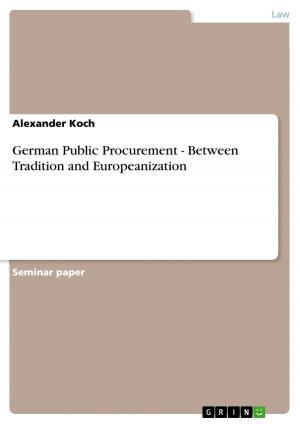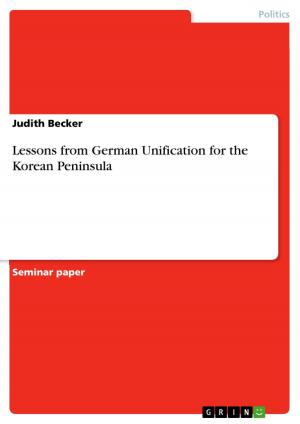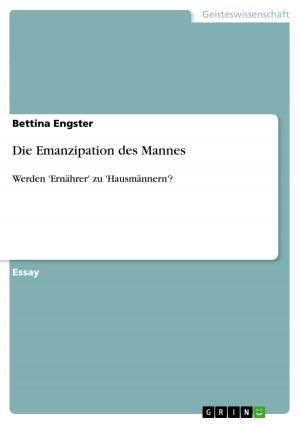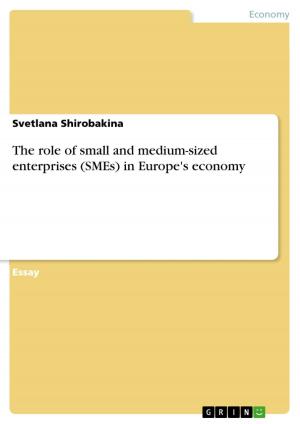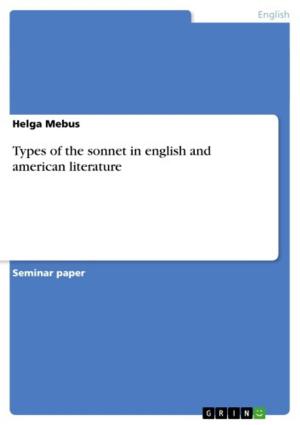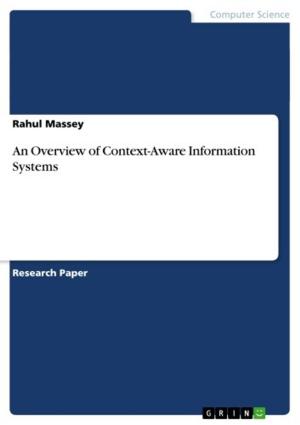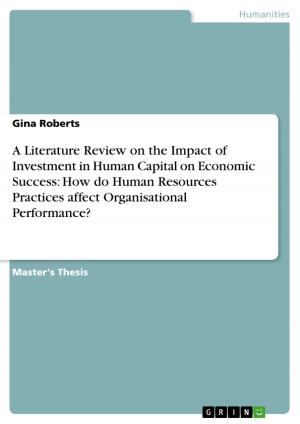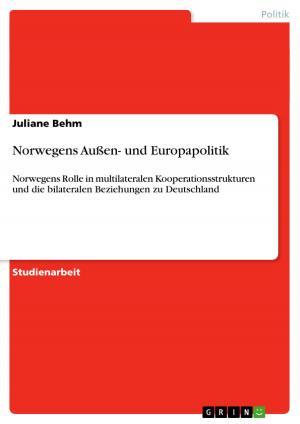| Author: | Eva Steinbrecher, Anke Böttcher | ISBN: | 9783640430680 |
| Publisher: | GRIN Publishing | Publication: | September 21, 2009 |
| Imprint: | GRIN Publishing | Language: | English |
| Author: | Eva Steinbrecher, Anke Böttcher |
| ISBN: | 9783640430680 |
| Publisher: | GRIN Publishing |
| Publication: | September 21, 2009 |
| Imprint: | GRIN Publishing |
| Language: | English |
Seminar paper from the year 2005 in the subject American Studies - Linguistics, grade: 2,0, University of Hamburg (Amerikanistik), language: English, abstract: What is the most likely performed action of a person who stumbles over a yet to him unknown or unfamiliar word? It is neither the internet nor the television (which holds plenty of information and is without a doubt the most important source in requiring recent news) but the dictionary he will seek his information in. In the time of globalization, the influence and significance of communicating with humans of different speaking languages is raising. Language is first of all a means of communication and it is no exaggeration if one is proclaiming that knowing more than the native tongue and being at least bilingual has become a normalcy. If we want to understand and communicate with people of other nations, we ultimately have to learn their language and vice versa. Dictionaries provide the basic information if it is about learning something of different languages. The importance of the dictionary becomes evident by the fact that over 90 % of households in Britain possess at least one dictionary, therefore making it far more popular than the Bible, which was to be found in about 80 % of households in England in 1983, according to the Bible Society. 1 The dictionary being referred to in this term paper is one particular type of dictionary, namely the monolingual dictionary for the adult native speaker of English. The aim of this work is to outline the history as well as the structure of a common dictionary. How is it arranged, what content and information does it provide and what purposes does it fulfil? These and other questions will be subjects of concern. Besides dictionaries, other helpful sources exist in attaining a language's vocabulary, phrases and synonyms. One of these excellent sources is a thesaurus, which will be the subject of the second half in this term paper. Stress is being put on the history as well as the structure and content of a thesaurus.
Seminar paper from the year 2005 in the subject American Studies - Linguistics, grade: 2,0, University of Hamburg (Amerikanistik), language: English, abstract: What is the most likely performed action of a person who stumbles over a yet to him unknown or unfamiliar word? It is neither the internet nor the television (which holds plenty of information and is without a doubt the most important source in requiring recent news) but the dictionary he will seek his information in. In the time of globalization, the influence and significance of communicating with humans of different speaking languages is raising. Language is first of all a means of communication and it is no exaggeration if one is proclaiming that knowing more than the native tongue and being at least bilingual has become a normalcy. If we want to understand and communicate with people of other nations, we ultimately have to learn their language and vice versa. Dictionaries provide the basic information if it is about learning something of different languages. The importance of the dictionary becomes evident by the fact that over 90 % of households in Britain possess at least one dictionary, therefore making it far more popular than the Bible, which was to be found in about 80 % of households in England in 1983, according to the Bible Society. 1 The dictionary being referred to in this term paper is one particular type of dictionary, namely the monolingual dictionary for the adult native speaker of English. The aim of this work is to outline the history as well as the structure of a common dictionary. How is it arranged, what content and information does it provide and what purposes does it fulfil? These and other questions will be subjects of concern. Besides dictionaries, other helpful sources exist in attaining a language's vocabulary, phrases and synonyms. One of these excellent sources is a thesaurus, which will be the subject of the second half in this term paper. Stress is being put on the history as well as the structure and content of a thesaurus.

